MASHPEE – What do a former US congressman, a former Barnstable County commissioner and the CEO of the largest addiction treatment center on Cape Cod have in common?
They are all part of the team put together by Medical Marijuana of Massachusetts, Inc., a newly formed nonprofit that wants to open a medical marijuana dispensary in Mashpee.
 But as to why they are involved, each has a different reason.
But as to why they are involved, each has a different reason.
Former US Representative William D. Delahunt, now a lobbyist whose firm is Delahunt Group International LLC, is head of the board of the company. He said he wants marijuana to take the place of powerful opiates as a safer way to manage pain than highly addictive opiates.
Former Barnstable County Commissioner Mary Leclair, who is serving as a community liaison for the company, said she got involved with the medical marijuana issue because she wants to ensure that funds from the nonprofit organizations are funneled to local nonprofits in need.
And Raymond V. Tamasi, President and CEO of Gosnold on Cape Cod, whose role for the medical marijuana group is in community education, said he wants to ensure the waiting rooms of medical marijuana facilities to have brochures educating patients on the dangers of drug addiction.
A ballot initiative legalizing medical marijuana in Massachusetts passed overwhelmingly in November 2012.
The ballot question limited the number of dispensaries in the state to 35 with no more than five and no less than one per county. On November 21, 2013, the Massachusetts Department of Public Health received 100 applications from firms hoping to open dispensaries in the state.
Delahunt on behalf of Medical Marijuana of Massachusetts went before the Mashpee Board of Selectmen last week and was granted a letter of support from that body for their plan to open a dispensary on Echo Road off Route 130. Medical Marijuana of Massachusetts also wants to open dispensaries in Plymouth and Taunton.
After the presentation, Delahunt said, “I thought it went very well. We made a presentation and received their support.”
He said he became involved in the medical marijuana issue because in his years as a politician and earlier in his career as Norfolk County district attorney, he was alarmed by the opiate addiction epidemic in Massachusetts and across the United States.
“I became very much aware of what is truly devastating the country: the abuse of prescription drugs, particularly painkillers like Oxycontin.”
Delahunt said he was approached by a group of physicians last February, three months after the medical marijuana bill passed at the ballot box.
“They are in a position to witness and observe the discomfort and pain that of extremely debilitating conditions. I saw [medical marijuana] as an option to these pain-killing drugs that have really created substantial problems, not just in Massachusetts but across the United States.”
Delahunt is not new to the medical marijuana issue. When he was in the US Congress, he created the prescription drug abuse caucus with two Republican colleagues. “This is a national scourge,” he said of abuse of prescription drugs.
Around the same time he was working on the national level on the issue through the caucus, in Massachusetts, a commission of state legislators, led by state Senator Steve Tolman was studying the issue of OxyContin and heroin abuse. That commission put out a report that offered stark proof of the damage prescription opiate abuse had caused in the commonwealth.
“The statistics are stunning as to what has occurred in Massachusetts,” Delahunt said. In a short period of time, there have been 4,000 to 5,000 deaths from overdosing on painkillers. “We did not lose that many soldiers in Iraq,” Delahunt said.
Delahunt said marijuana could replace opiates in some cases. “I think it is a reasonable alternative.” And he said his work on the issue has led him to believe it is a relatively safe alternative.
“I spent a real significant amount of time examining the issues of prescription drug abuse. No one has ever died of an overdose of marijuana. But in a relatively short time, thousands of people have died from prescription drug overdoses in Massachusetts,” he said.
On the dangers of marijuana, Delahunt said, “It’s clear that there’s not any physical addiction but there are disputed theories that there is a psychological addiction.”
That’s where Tamasi comes into the picture.
“That’s why we wanted to have as part of our effort people who have expertise in the area [of addiction]. That is an opportunity for patients to discuss these types of issues. I think that it is important,” Delahunt said.
“It is very, very important to educate people about drugs and the consequences and what can occur and let them know there are addiction treatment centers like Gosnold,” Delahunt said of Tamasi’s involvement.
Delahunt’s team also includes retired police lieutenant Joseph Flaherty and retired DEA agent, Carlo Boccia, who are both listed as part of the security team for the group. He said it was important to him that his team have “not only a substantial record of professional expertise but also people with records of public service and civic engagement.”
He said the medical doctors in his group have “preeminent qualifications.” The lead doctor is Dr. Trexler Topping, the president of a large physicians group. “He is highly respected at the national level,” Delahunt said.
On the board with Delahunt is Jonathan Herlihy, who manages a large Physician Group, which has an office in Sandwich.
K. Lianne Ankner of Ankner & Levy, counsel to the group, is a healthcare attorney.
Delahunt said it is premature to talk about whether he will profit from the venture. He said he is not being paid now and he is not working as a lobbyist on the project. “There will be—I’m sure—fees but it’s way down the line. It’s considerably down the line,” he said. “Once we secure a license, obviously we’ll be making charitable contributions to the community,” he added.
But he said in the future, “I would be an investor.” But any talk of money-making, he said, “it’s really preliminary. Nobody has a license. I don’t think anyone can accurately predict what the revenues or contributions to charitable groups would be. It would generate taxes for the local community.”
Though as congressman from 1997 to 2011, Delahunt was one of the most powerful politicians in Massachusetts, he said his involvement in the medical marijuana business holds no political sway and he played down any influence he has before local boards. “I don’t know if it’s a big deal. I’m a private citizen now,” he said.
But he said the experts on his team serve to allay any concerns about public safety and will work well with local police. In Mashpee, Delahunt said he was very pleased that Mashpee Police Chief Rodney Collins put his support behind Delahunt’s group.
Mary LeClair, who is the community liaison for Medical Marijuana of Massachusetts, said she got involved in the issue in order to ensure that the profits from the medical marijuana dispensaries that open on Cape Cod stay on Cape Cod. She pointed to the way the law is written in Massachusetts that all medical marijuana dispensaries must be nonprofit.
LeClair was originally involved with a medical marijuana group that did not make it through the first phase of the state’s application process because of financial limitations. After that group dropped out of the running, LeClair said Delahunt recruited her to be the community liaison for Medical Marijuana of Massachusetts.
LeClair said, “The reason that I got involved in medical marijuana was I saw that the way the law was written, here was a direct way to help the community. After all your expenses, the profits are supposed to go back to the community. They have to be nonprofit. I felt I would like to be like a watchdog and see what happens and make sure of that.”
The people involved with Medical Marijuana of Massachusetts have strong credentials from the security to the business side, she said.
LeClair said she is not being compensated for her efforts. “Not at this time,” she said. And she stressed that compensation has nothing to do with her involvement. “My concern is that the community is taken care of,” she said.
She also said she is sympathetic to those who say they need medical marijuana to help with debilitating conditions. She said she has a family member with epilepsy and “I’ve seen cases where [medical marijuana] helps,” referring to a television show she saw of a 10-year-old child who had 300 seizures per week and was helped by marijuana.
LeClair was on the board of Gosnold for over 25 years, most recently as chairman, and she said she has long had an interest in addiction prevention, education and research.
She pointed out that Medical Marijuana of Massachusetts is sensitive to the environmental needs of the Cape and that’s why they are planning to cultivate the marijuana plants off Cape, even though the dispensary will be on Cape.
The Cape is a sole source aquifer, she said. “It takes an awful lot of water to cultivate [marijuana].”
Raymond Tamasi, CEO of Gosnold of Cape Cod, the Cape’s largest addiction treatment facility, said he was approached by Delahunt who he has known for many years, to be a part of the group, As a congressman, Delahunt helped Gosnold get funding, Tamasi said.
He said he has not met the principals of Medical Marijuana of Massachusetts but he said the group is made up of upstanding people.
“That was absolutely important. It’s not a ragtag group of people who run a convenience store. It certainly was important to know these are reputable people who want to do something professional,” he said.
Tamasi’s role with Medical Marijuana of Massachusetts is as an education and addiction treatment consultant. He said he is not an investor and does not plan to be an investor or board member in the future.
Tamasi said he was originally against the medical marijuana legislation because he felt it was poorly written and had a lot of loopholes.
He said when Delahunt called him about the project, the ex-congressman said, “We want to do it properly and want to have access to someone who understands the broader issue of dependence.” Tamasi’s role would be to provide educational materials and to develop resource lists for patients “if they got into difficulty and had to be treated for dependence.”
Tamasi said he thought hard about it before accepting the role.
“I wrestled with it and talked to colleagues,” he said. But in the end, he decided it would be good for patients to have someone on the team with expertise in addiction.
“It’s not benign. You need to know some things about this medicine,” he said. “I’m not exactly a watchdog but it’s not a bad thing to have someone able to have expertise for people who are using a substance that has mind-altering properties. There is, I think, a role for our level of expertise, folks that are knowledgable about alcohol and drug addiction and dependence.”
Tamasi clarified that he is not on the board of the entity and is not involved “in a legal way” nor is Gosnold itself involved.
He said he is involved solely for the preparation of educational materials, pamphlets, instructions and cautionary materials. “I think that’s an okay place for an addiction treatment person to be,” he said.
On the subject of whether marijuana is addictive, Tamasi said it is not straightforward. When people think of addiction, he said, they think about substances that have a very difficult and potentially fatal withdrawal. “That’s not the case with marijuana.” But he said there is a psychological dependence on the substance. “We’ve treated people who are addicted to marijuana. It’s clearly addictive. The legalization proponents talk about it as being not as bad as something else. That’s a pretty weak rationale for sanctioning something, that it’s not as bad as something else,” he said.
Tamasi said Gosnold has seen a lot of individuals who are addicted or dependent on prescription pain medication that they’ve been prescribed to manage pain. “They can’t stop using the medication because it’s an opiate and they’ve become addicted. We’ve helped them through the withdrawal. I don’t anticipate we’ll see a lot of that with [medical] marijuana.”
Tamasi said that marijuana is a psychoactive drug and therefore if it is stopped abruptly, the patient will likely feel anxiety, but “you won’t have a syndrome that requires hospitalization,” the way you would with opiates or alcohol. “[With those] you need medical interventions. The results can be fatal.”
Tamasi said that medical marijuana would be safer than street marijuana just by virtue of the fact that with drugs bought on the street “you don’t know what’s in it.”
But he said, marijuana, a hallucinogen, affects the brain. “What we see over time in chronic marijuana use, the most dramatic thing is, it blunts one’s ambition and motivation, what he calls ‘amotivational syndrome.’”
He said, “People who go through life smoking pot . . .they’re living a life that is not proportionate to their capability. The drug dulls that sensibility.”
Tamasi said he is not a pain management expert, but he has talked to folks, including veterans with chronic pain, who say they’ve used marijuana and it has made a difference for them.
“They claim they’ve been helped,” he said.
He said he looks at medical marijuana as one other resource for physicians. “It doesn’t replace other medications for pain. It might be right for some people. Obviously the public felt doctors should have the option to prescribe this to patients that might benefit.” He said inappropriate prescribing patterns are a concern. “One thing I might be asked to do is provide materials for physicians,” he said.
When asked if political influence will decide who gets a license to run a medical marijuana dispensary, Tamasi said, “I would hope not. I hope it goes to groups that present the most professional program and are clearly structuring themselves as medical service providers in a service linked to physicians.”
He added that he has played no part in the structure of Medical Marijuana of Massachusetts. “I’m a bit player,” he said.
As to payment, he said, he has not seen any money yet. The agreement, he said is if performs a service by providing materials, he would get paid. “My involvement is so minimal. If I see a nickel two years down the road . . . I’m not quitting my day job.”
Delahunt is not the only prominent former politician hoping to get involved in the new medical marijuana industry on Cape Cod.
Henri Rauschenbach of Brewster, former Republican state senator representing the Cape & Islands, is on the board of the Kingsbury Group, which has applied to open medical marijuana dispensaries in Bourne, Dennis and Martha’s Vineyard. The group wants former Cartwheels 2 family fun center site on Macarthur Boulevard in Pocasset as its Bourne site.
But whether it is former policians, law enforcement officials, or even an addiction treatment specialist involved in the medical marijuana field, it’s clear this is the beginning of a new era,
As Tamasi put it when the irony of someone like him being involved was brought up: “The world is changing,” he said.
– Laura M. Reckford

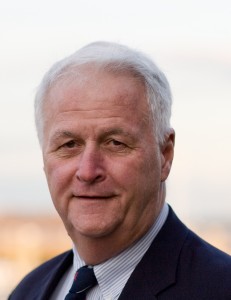
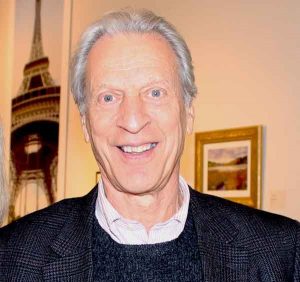

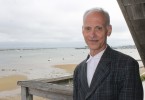



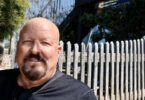









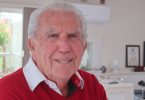




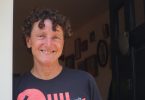









Very serious, in depth article. Should serve as a model for reporting on the subject.
It’s my thought that whom every made any pill with an opiate in it and to give to any patient outside of the trama unit. Needs to be placed in The Federal Pin. They knew those pill would kill people and make them always need more if not wend off. especially the elderly. but nope the citizen are the addiction problem. so now if patients don’t die from them they go to jail for having them or trying to purchase them so their not deathly sick. NOP, just throw them in jail. they are the problems. not the ones with four brains and PHD’s. I’m sure one trip to the azures could have solved these pain issues years ago. but the plants probable didn’t make you sick or fen for more and then no one would make money. So the greed said to them it’s better to kill off a few or better yet have them placed in prison for having a disease or disorder that is painful. I have fibromyalgia and would rather die of pain then of pain pills.
Hello guys. I hAve to agree . I was an addict I know pot barely crossed my mind though in those days. I believe that the crime rate will drop for sure and people will have a chance with many health problems and not have to take twenty medications , thier less drugged up than your average American. ..consitter that 85-87 percent of Americans are on one type if not multiple medications and we may have found the key to keeping innumerable disorders at bay with cannabis. K I’ll be quick but I want to work or to own. Company like the one you have t the moment it’s my dream I have a green thumb an I know a good portion of the ropes . Pleas if you interested and need help let me know by all means I would be estatic.from scientific point of view though more than anything